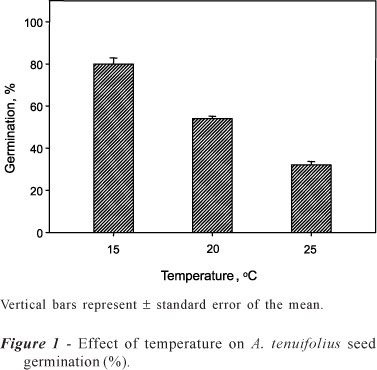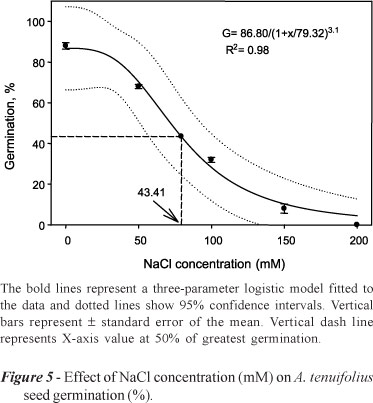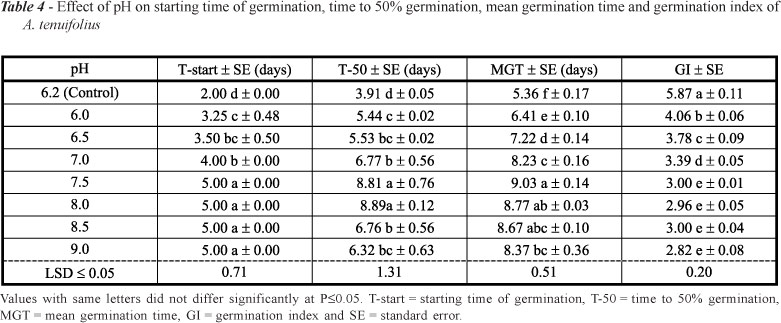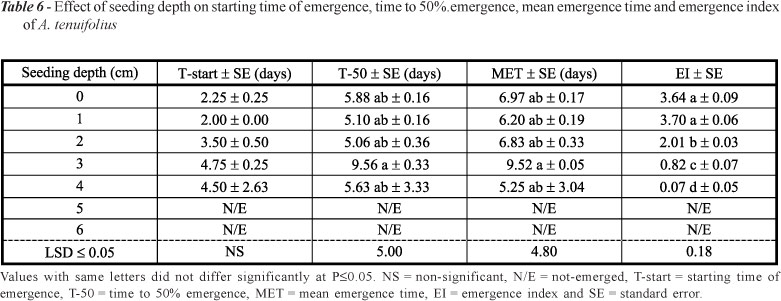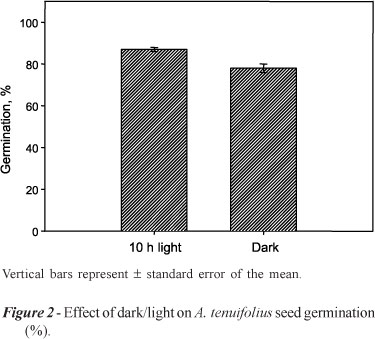Asphodelus tenuifolius is becoming a more common weed in rain-fed area in Pakistan. Laboratory and greenhouse experiments were conducted to determine the effect of different environmental factors on germination and emergence of A.tenuifolius. Results showed that A.tenuifolius can tolerate a wide range of varying environmental factors. Greatest percentage of germination (80%) was recorded at 15 ºC constant temperature; however, considerable germination occurred at 20 and 25 ºC. Light for 10 h photoperiod stimulate germination of Asphodelus tenuifolius compared with complete darkness. Germination was totally inhibited at osmotic stress higher than -0.8 MPa. There was no significant difference in germination at pH 6 to 8; however, there was a slightly decrease at pH 9, compared with distilled water. Asphodelus tenuifolius was very sensitive to salinity; however, a few seeds of A.tenuifolius were able to germinate even at 150 mM NaCl concentration. Greatest emergence occurred with seed placed at soil surface and emergence decreased with increase in burial depth. No emergence occurred from 4 cm or greater. This information may aid in developing tools and strategies for management.
Asphodelus tenuifolius; temperature; water stress; salt stress; pH; seedling emergence; seeding depth

